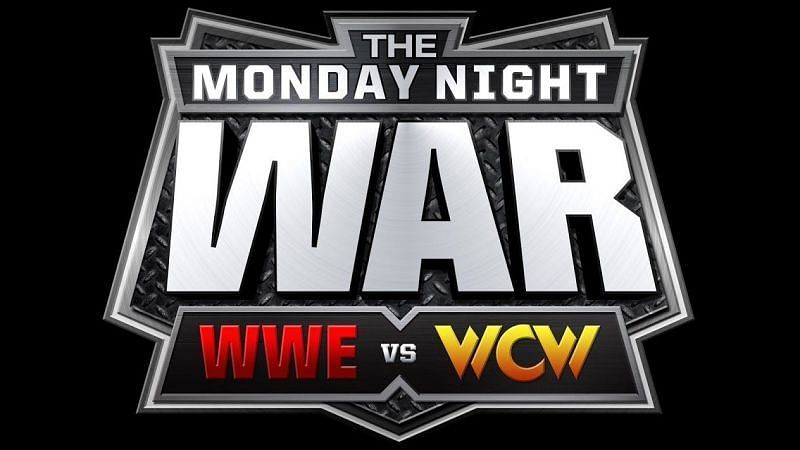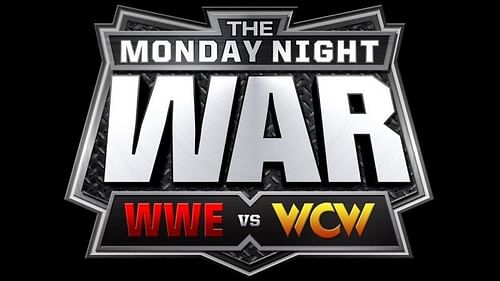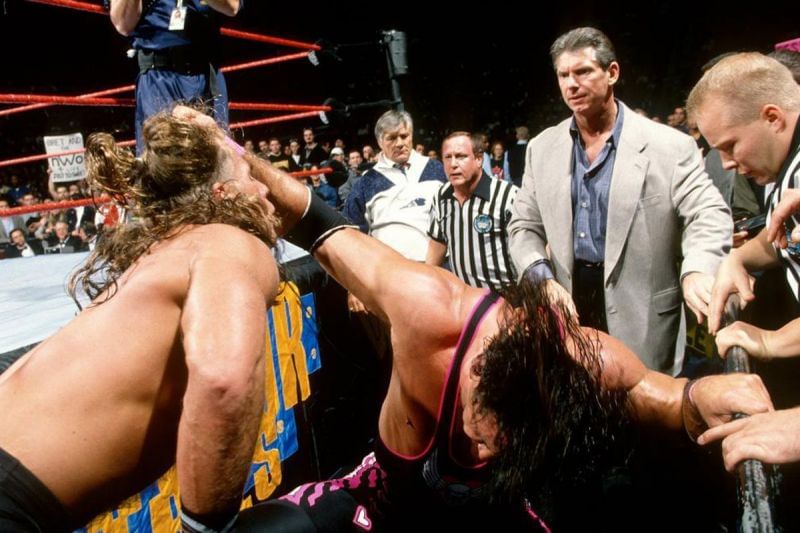
5 Events that led to WWE winning the Monday Night War

They say history is written by the winners. This has never been truer than in the case of the Monday Night War which pitted WWE and WCW's flagship Monday Night broadcasts, WWE Raw and WCW Nitro against each other for six years between September 1995 and March 2001. WWE has gone on record many times to say they defeated WCW due to their own smart business and booking decisions, which forced WCW to fold, leaving the mighty sports entertainment powerhouse free to buy their competition for a paltry $3 million, plus legal expenses, in spring 2001.
While WWE undoubtedly played a part in putting immense pressure on WCW with a well-booked promotion and top line, youthful main event stars such as Stone Cold Steve Austin and The Rock, the truth of the matter is that WCW's demise was primarily brought about by themselves. WWE has stated many times that WCW never created their own stars during their financially successful 1994-2001 period and instead bought ready-made names from WWE.
While there is some truth in that statement as the signings of Hulk Hogan, Macho Man Randy Savage, Rowdy Roddy Piper, Kevin Nash and Scott Hall made a huge difference to WCW's bottom line, the assertion that they developed no stars of their own during that period is completely false. Between 1994 and 2001, WCW made stars out of Brian Pillman, Diamond Dallas Page, Goldberg, Chris Jericho, Chris Benoit, Booker T, Scott Steiner as well as an entire Cruiserweight division boasting such names as Eddie Guerrero, Dean Malenko and Rey Mysterio Jr.
Where WCW went wrong is that few of those names broke through the glass ceiling and became bonafide main event stars, with WCW being forced to feature the likes of Hogan and Savage on top, far past their prime due to their contracts featuring creative control clauses. This list looks at how WWE won the Monday Night War, with credit going to their own decisions and also the catastrophic, counterproductive calls WCW made in relation to their own demise.
#5 The Montreal Screwjob (November 9, 1997)

The Montreal Screwjob was a defining moment in the WWE vs. WCW war, but not in the way most expected at the time. When then-WWE champion Bret 'Hitman' Hart was screwed out of the WWE title for real by WWE owner Vince McMahon three weeks before he was due to join WCW, many thought that would be the death knell for WWE.
In November 1997, WCW was just one month removed from putting on its most financially successful pay-per-view event ever, Starrcade 1997; headlined by a match 18 months in the making between WCW World Champion, Hollywood Hulk Hogan and Sting. The event was the joint richest in history at that point, equalling Wrestlemania V, headlined by Hogan and Savage in 1989, with 650,000 buys.
With its main event crew consisting of Hogan, Savage, Piper, Sting, Ric Flair and now Bret Hart, WCW was undoubtedly the number one promotion in the wrestling world. WWE, meanwhile, had Shawn Michaels and The Undertaker and no one else. Stone Cold was recovering from a career-threatening neck injury and had not yet entered the headline bracket. WWE's Survivor Series outperformed WrestleMania, but still only drew 250,000 buys with their two biggest draws in Hart and Michaels.
WWE was in terminal decline and WCW were the major players in wrestling. However, the screwjob turned WWE owner McMahon into his company's premier heel. Pit opposite Stone Cold, who against all odds was recovering sufficiently from his neck problem, the Austin/McMahon program struck a chord with the working classes of America, with the redneck Austin standing up to his tyrannical boss, week after week, usually to great success.
With The Rock accelerating up the undercard as Intercontinental Champion, and a new D-Generation X forming post-WrestleMania XIV, WWE suddenly and unexpectedly had young stars and hot programs whereas WCW's aging main event crew almost overnight became passe. To make matters worse for WCW, they neglected to make the most of their new acquisition, Hart.
Following the screwjob, Hart became the hottest star in wrestling but that momentum dwindled when WCW inadvertently made him look like a fool at his WCW pay-per-view debut, Starrcade (due to Hogan-related meddling) and was reduced to upper mid-card level, so Hogan and Savage and the like could continue to wrestle in the headline positions. That proved to be one of several fatal decisions the company would make over the next few years.
One of the constant criticisms that the WCW had to endure throughout its reign was how they mismanaged talent. Plenty of young superstars jumped ship to the WWE purely because of lack of opportunities in the WCW.
If someone with Bret Hart's legacy did not get the attention he deserved with the brand, then imagine the plight of every other man in the locker room who did not side with the top brass of Ted Turner's promotion.